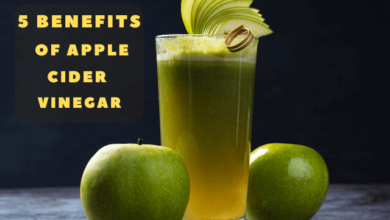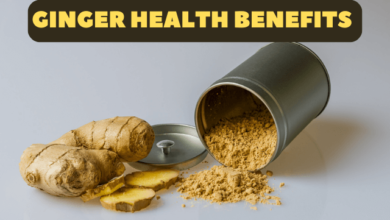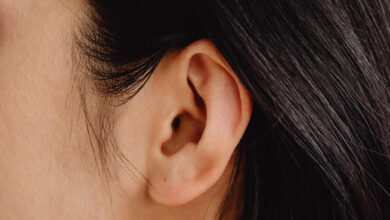15 Best The Health Benefits of Ginger What You Ought To Know
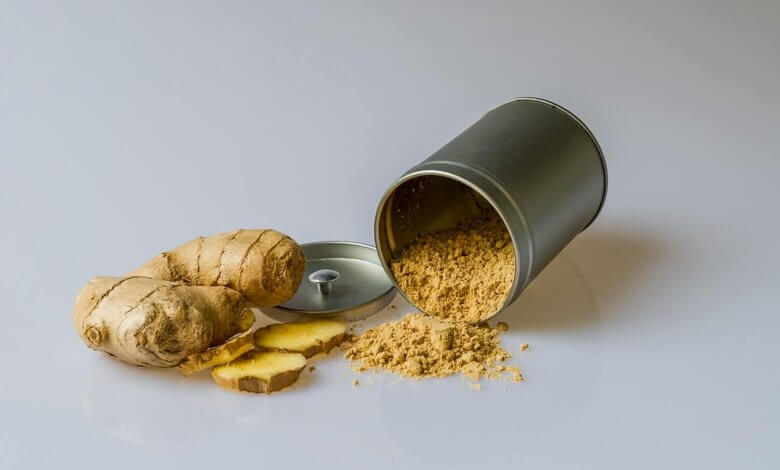
Benefits of Ginger: Top Health Benefits of Ginger
The health advantages of ginger are numerous and it is often classified as a wonder spice with both culinary and medicinal benefits. Over forty-four hundred years earlier, according to “Rodale’s Encyclopedia of Herbs”, Greek bakers made gingerbread from ginger that was imported from the Orient. In 1884 Great Britain was importing well over 5 million pounds of ginger root.
The Diverse Nutrition and Health Benefits of Ginger
Ginger includes bisabolene, boreal, borneol, camphene, choline, cineole, citral, gingerol, inositol, volatile oils, PABA, phellandrene, acrid resin, sesquiterpene, many B vitamins, zingerone, and zingiberene. It has actually been utilized throughout history to treat colitis, diverticulosis, gas, indigestion and queasiness, paralysis of the tongue, morning sickness, vomiting, hot flashes, and menstrual cramps. It is said to cleanse the colon and stimulate blood circulation. It has also been utilized to treat colds and aching throats.
Ginger can be very hot to the tongue it purportedly is great for indigestion. Ginger assists to promote circulation and is a really moderate stimulant. Ginger tea is stated to be very efficient in preventing colds.
Growing Ginger
Ginger is grown throughout much of the tropics commercially and in other areas, it can be grown in a container or container gardening. To grow your own, offer your purchased rhizome lots of warmth, humidity, and wetness after planting. You can move it outdoors in warmer months in a rather dubious location. About 12 months after planting, you can remove it from the pot. Remove the fibrous roots. Cut off as much as you can use. Conserve a small amount to replant again in a brand-new pot. You can purchase ginger commercially fresh, dried ground, or in dry pieces. Fresh ginger needs to be covered firmly and stored in the refrigerator. When stored in this method, it can last for several months.
Ginger Ale Recipe
Who hasn’t delighted in a tall wintry glass of ginger ale? Ginger ale was thought about as the most popular soft drink in the U.S. in the early years between 1860 and the 1930s. There are a number of different kinds of recipes around for how to make your own homemade ginger ale or ginger beer. A simple home dish for ginger ale is to take some fresh ginger and squash the root. Location one cup of the root into a gallon approximately of water and give a rolling boil. Eliminate from the heat and let it high for about 15 minutes. This will release the powerful flavor and healthy residential or commercial properties of the ginger. You then strain it. You might include honey or the sweetener of your option in this tea. Then just include your preferred amount to some carbonated water.
Ginger ale typically includes ginger, sugar, and carbonated water. Ginger beer has a more powerful flavor of ginger and is less much and carbonated less sweet. For those trying to cut back on their alcohol intake ginger ale can be used as a nonalcoholic alternative in punches and for champagne at different events and events.
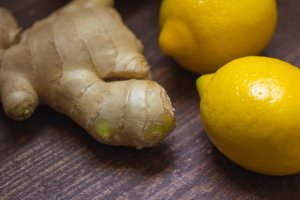
Other Culinary Uses for Ginger
A little ground ginger included in mayonnaise makes a great topping for a pear salad. A chef’s suggestion is to put 1 slice of peeled fresh ginger into a marinade you make for each pound of meat or poultry. If you like fried chicken and livers, you can make seasoned flour by shaking some ground ginger into the flour mix to toss the meat in prior to frying.
To make ginger tea, use a pinch to a tablespoon of ginger powder per cup of boiling water. If you prefer a more powerful tea, increase the amount of ginger rather than letting it high for a long duration of time.
Ginger baths can be another excellent health benefit besides simply the intake of the herb. Ginger baths can help alleviate discomfort and increase flow. Just drop a few grated gingers into your bath and soak. You can likewise soak fabrics in ginger tea and use these directly to the painful location of the body.
Allergies
While speaking of the advantages of ginger, there are those who might be allergic to ginger. Serious allergic reactions to ginger may consist of a rash, hives, trouble in breathing, and various kinds of dermatitis. If this is the case, stop taking ginger right away and seek some medical attention. A couple of negative effects have actually been related to ginger taken at low doses. In conclusion, there seem to be numerous benefits to including ginger in your diet. The health benefits of ginger are exceptional and it has the capability to add great taste to the diet.
Summary
An intense spice, the health benefits of a ginger stretch from increasing blood circulation to assisting with indigestion in addition to being a component in numerous dishes from around the world and is simple to include into numerous easy and quick meals as part of your everyday diet.
Comprehending the Benefits of Ginger
More than simply a delicious spice or food – discover the health advantages of ginger
Ginger, officially referred to as Zingiber officinale, is a terrific spice prized for its taste and medicinal properties. This short article will offer you the incredible advantages of ginger, probably unexpected by some.
Ancient Ginger Root
Among the important things that make ginger so unique is that it has actually been utilized for more than 2,500 years by Chinese herbalists. Typically used for flavoring, the Chinese found ginger herb root could heal the body. As the popularity of ginger increased, the Greeks began using it to make bread, thus the production of gingerbread and colonists in North America found that by sipping ginger beer, an upset stomach was relaxed. Because of that, among the many benefits of ginger root is queasiness.
This root is extremely effective as a digestion aid due mostly to the active components of schools and gingerols. By ginger soothing the stomach, flatulence is frequently relieved.
Health Benefits of Ginger
To totally comprehend the benefits of ginger, let us break them down. With ginger, drowsiness is seldom a problem. In addition, ginger has actually been revealed to help with anesthesia responses.
Regardless, being able to control queasiness has many advantages. For the private suffering from motion sickness, just one gram of powdered ginger taken daily can cut the occurrences of vomiting and sweats. In fact, one of the benefits of ginger root specific to motion sickness is that it showed to provide a soothing impact. The very same holds true for dizziness, which is a side effect typically related to motion sickness. With gingerroot, the level of lightheadedness is decreased.
Ginger and Its Anti-Inflammatory Effects
Another one of the health advantages of ginger has to do with chronic pain, a typical complaint among millions of people. Given that ginger consists of an anti-inflammatory part, it can indirectly eliminate discomfort by reducing swelling.
Other health benefits of ginger consist of reducing signs associated with allergies, the typical cold, and other breathing problems. Since ginger is a natural antihistamine and decongestant, it can offer impressive relief from these signs by dilating restricted bronchial tubes.
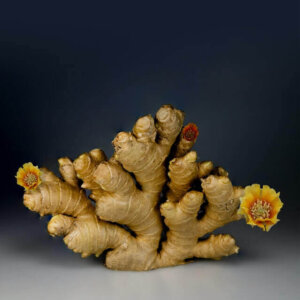
Purchasing Ginger Supplements
When you purchase ginger supplements, be sure they include pungent compounds, once again the schools and gingerols. You can even benefit from ginger by drinking eight ounces of ginger ale every day.
There are a few notes of caution associated with ginger. Pregnant women must not utilize ginger in dealing with queasiness throughout the first trimester and for people with gallstones, large quantities of ginger need to be avoided. Once again, individuals going into surgical treatment or those who bleed easily need to prevent ginger too because it can cause bleeding.
Advantages of Ginger – Homemade Skin Care
There are numerous advantages of ginger and it’s utilized in a range of methods! Ginger is the root of the plant Zingiber officinale. A rhizome is the horizontal stem of a plant usually found underground. Roots and shoots grow out from their nodes. Other names for root are root stalks or sneaking rootstalk. You might have heard the typical name of ginger referred to as root ginger or ginger root.
Ginger is a seasonal, reed-like, plant growing three to four feet tall. It produces clusters of white and pink flower buds that flower into yellow flowers. Because of its attractive beauty and tourist attraction to warm climates, it’s utilized as landscaping for lots of subtropical houses.
Ginger has a hot and sweet aroma. Young ginger roots are juicy, fleshy, and have a really moderate taste. It’s chosen and utilized as an ingredient in cooking meals or soaked in boiling water for ginger tea. Powdered dry ginger is frequently used as a flavoring for snacks: candy, bread, cookies, crackers, cakes, and more. Fully grown ginger roots are fibrous and almost dry. The juice from these roots is extremely potent. It’s utilized as a spice or flavoring for Chinese, Japanese, or lots of South Asian cuisines.
Ginger was originally cultivated in South Asia. Leading producers are now discovered in the countries of India, China, Indonesia, Nepal, Nigeria, Bangladesh, Japan, Thailand, the Philippines, and Sri Lanka. Historically, the medical term for ginger was Jamaican ginger. It’s now cultivated in Jamaica and enters this nation dried and preserved. Ginger from the West Indies is thought about to be the very best.
HEALTH BENEFITS OF GINGER
Ginger includes essential oils, protein, calcium, phosphorus, iron, vitamin C, choline, folic acid, inositol, manganese, pantothenic acid, silicon, and a percentage of vitamin B3.
Relieves or decreases queasiness, diarrhea, indigestion, motion sickness, the pain and inflammation of arthritis, anxiety, anxiety, indigestion, colds, coughs, asthma, bronchitis, influenza, sore muscles, headaches, menstrual cramps, and more.
It has anti-oxidants benefits with more than twelve types of antioxidants! Blue ginger, from Madagascar, has a particularly potent antioxidant! Ginger is acknowledged as safe, it may cause allergic reactions such as: bloating, gas, heartburn, belching, and more.
SKINCARE AND GINGER ESSENTIAL OIL
Ginger essential oil is extracted by steam distillation from the rhizome root and yields about 3% oil. It has a pale yellow to dark amber color with a strong, or sharp, spicy-warm aroma. It has invigorating, energizing, promoting, anti-septic and anti-bacterial homes. Ginger vital oil is not suggested to utilize internally.
Assists: clear swellings, carbuncles, sores on the skin, arthritis, rheumatism, muscle aches, and discomforts, alleviate acne, lighten age spots, battle skin-damaging free radicals, decrease cellulite, promote smoothness and evenness of complexion, decrease inflammation, increase glow to the skin, offer aromatherapy benefits and more!
This oil is utilized in many business and homemade skincare products: soaps, shampoos, balms, body scrubs, creams, lotions, bath oils, massage oils, and more. Ginger oil blends well with bergamot, frankincense, neroli, increased, sandalwood, Jiang-Jiang, patchouli, rosewood, cedarwood, coriander, lime, grapefruit, geranium, spearmint, lavender, orange, vetiver, and other spice or citrus oils. It’s a non-toxic and, mainly, non-irritating compound, except when used in higher concentrations.
CARE! Ginger oil can aggravate the skin and cause photosensitivity, (level of sensitivity to sunshine). It can cause allergic skin reactions such as rashes, hives, soreness, or other skin irritations. Those with sensitive skin need to either prevent utilizing ginger oil or use it with extreme care. Stop using any items consisting of ginger oil, instantly, upon indications of skin irritation. Seek suggestions from your medical health supplier if symptoms persist.
MAKING HOMEMADE SOAP
Some simply love that distinct fragrance of ginger in their soaps! Ginger is used for making soap however it ought to be utilized with extreme care. If you are just finding out how to make soap, do not utilize ginger or ginger oil without the guidance of a master soap maker.
A touch of ginger oil can be handcrafted, with other natural oils, in a homemade shampoo. Ginger has been understood to either control or aid get rid of dandruff. Homemade shampoo with, a really small amount of, ginger oil can be cleaning, conditioning, and nourishing for the hair and scalp. There are numerous, healthful, advantages of ginger root and ginger vital oil! Ginger is utilized around the globe in a range of ways!
How to Make Ginger Tea – The Health Advantages of Ginger Tea
Ginger is a popular addition to energy drinks, with great reason. You can get the energy and health benefits of ginger tea without acquiring these costly and sugar-laden drinks.
Rather, why not attempt ginger tea? You can acquire fresh ginger root in many supermarkets now.
Ginger Tea Recipe
To make 4 cups of tea, start with a 1-inch piece of ginger. Peel the ginger and grate it coarsely or slice it thinly.
Bring 4 cups of water to a boil and include the ginger. Decrease the heat and simmer the tea for 15 to 20 minutes depending upon the strength you like.
Pour off the tea, or strain if necessary. Take pleasure in hot or cold. Many take pleasure in the tea as is, however you can likewise sweeten it with a little honey, and lemon is optional.
Ginger tea is commonly used as a cold solution. It is stated to enhance the body’s immune system, soothe aching throats, and treat bouts of influenza. It is also believed to enhance food digestion and aid ease queasiness.
Still not convinced to attempt ginger tea? Think about these known health advantages?
- Enhances circulation and blood circulation
- Eases cold and flu symptoms
- Alleviates stomach cramps, enhances food digestion and alleviates queasiness
- Minimizes menstrual cramping
- Helps control blood glucose
- Enhances the body immune system
Ginger tea is a healthy and spicy drink that will provide you energy, improve your immune system, and refresh your soul. Attempt a cup today.
Q 1. Health Benefits of Ginger?
Ginger is the rhizome of a perennial herb that can be grown in all parts of the world. Nevertheless, due to the reality that ginger takes a very long time to grow it is generally grown in the warmer parts of the world. If you reside in the cooler regions where the summer seasons are not long enough, you can grow your ginger in pots ideal inside your kitchen area.
Q 2. The Health Benefits of Ginger?
The health-giving advantages of ginger are lots of and differed. Ginger is a herbal root that is available in grocery store produce departments in its fresh form. It is also readily available in health food and vitamin shops in the form of pills or powders. It is an ancient solution that was utilized thousands of years ago to ease stomach issues.


